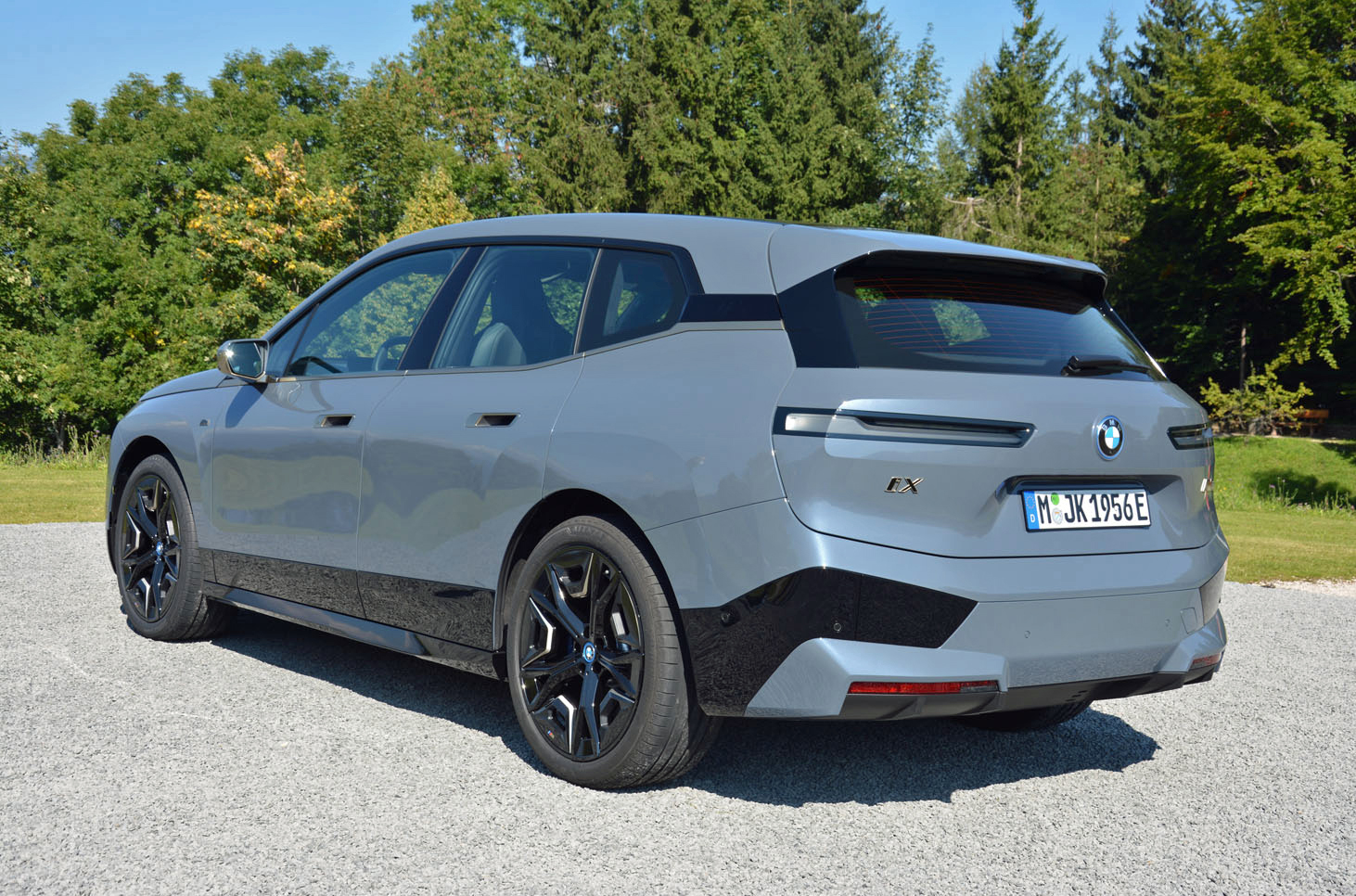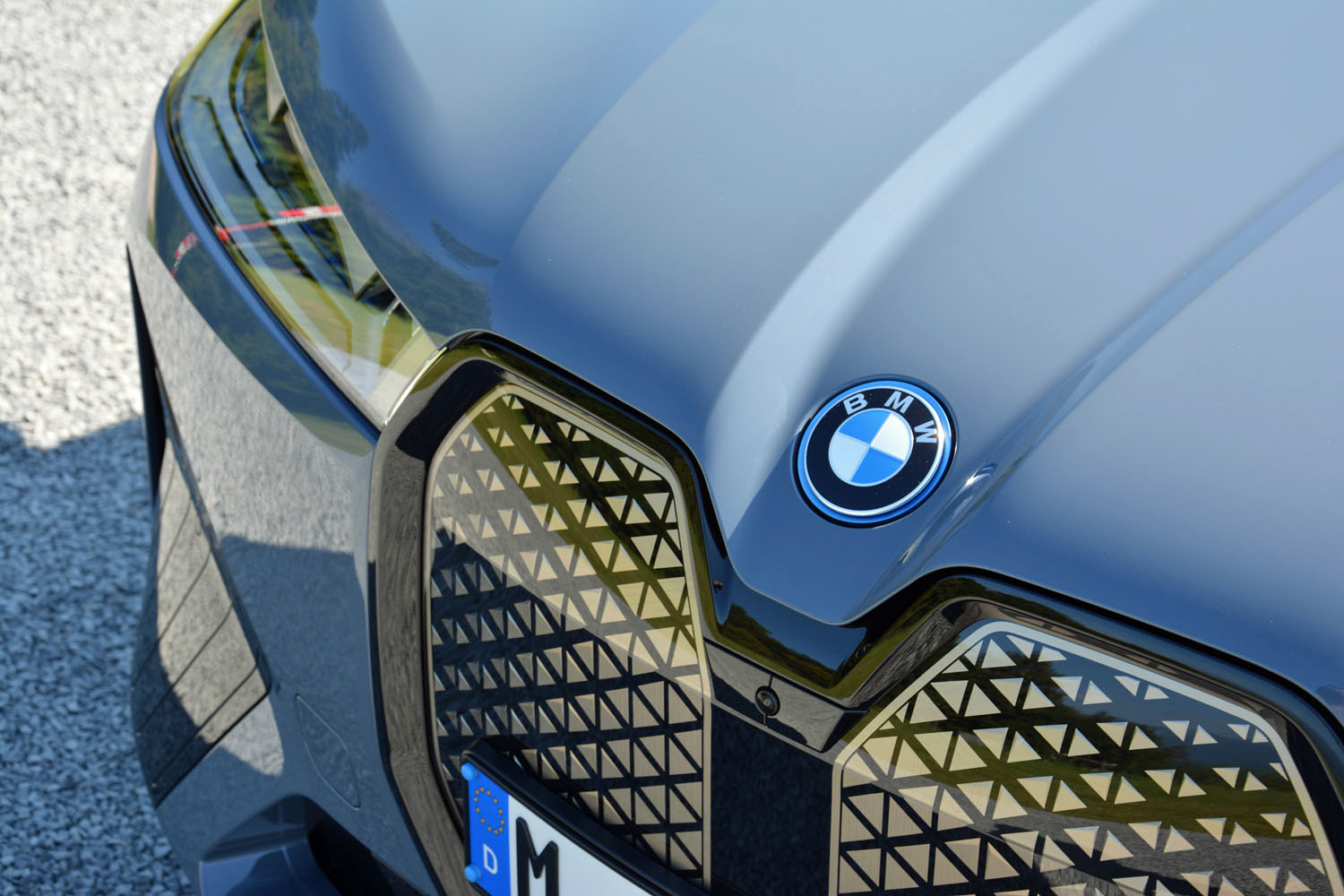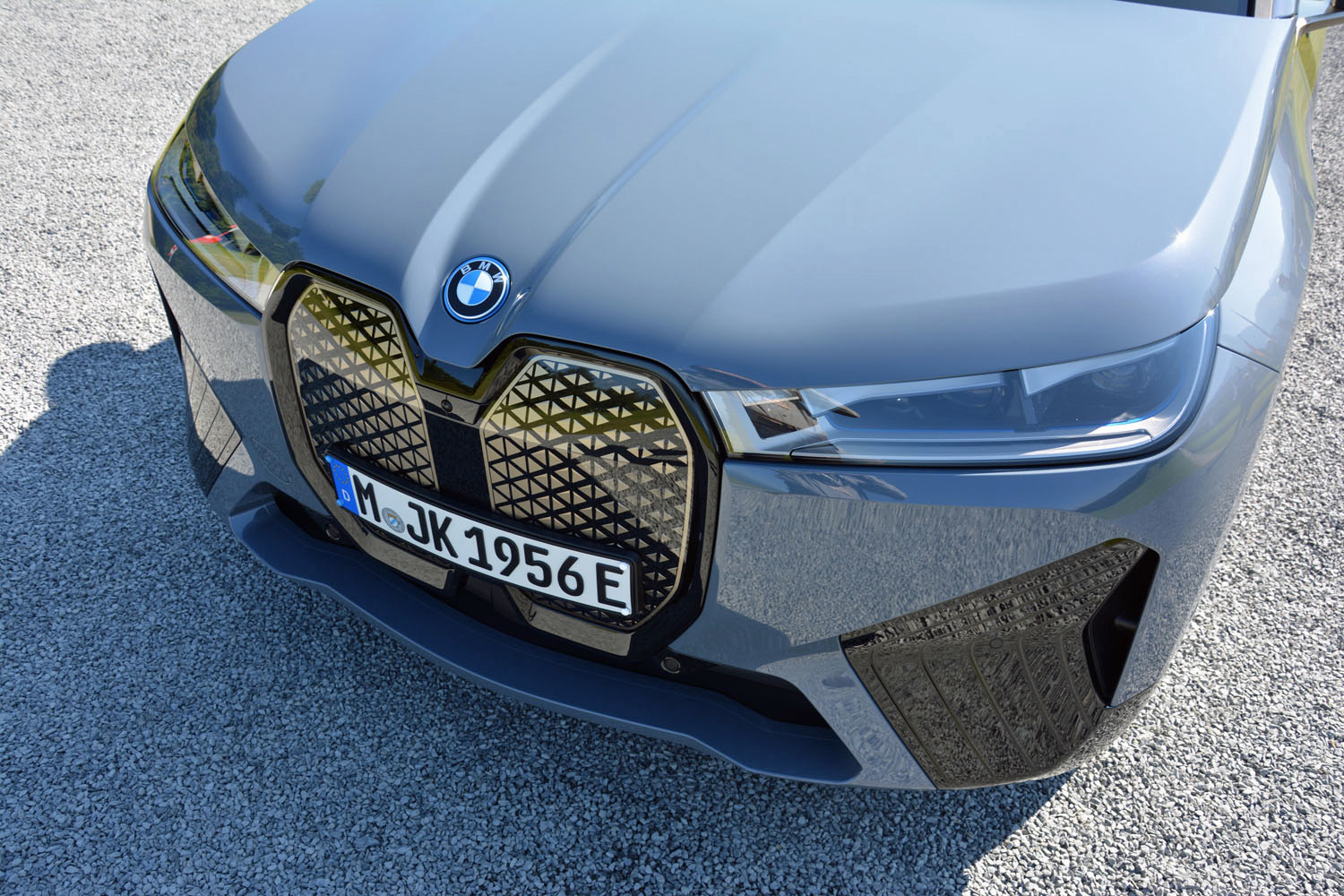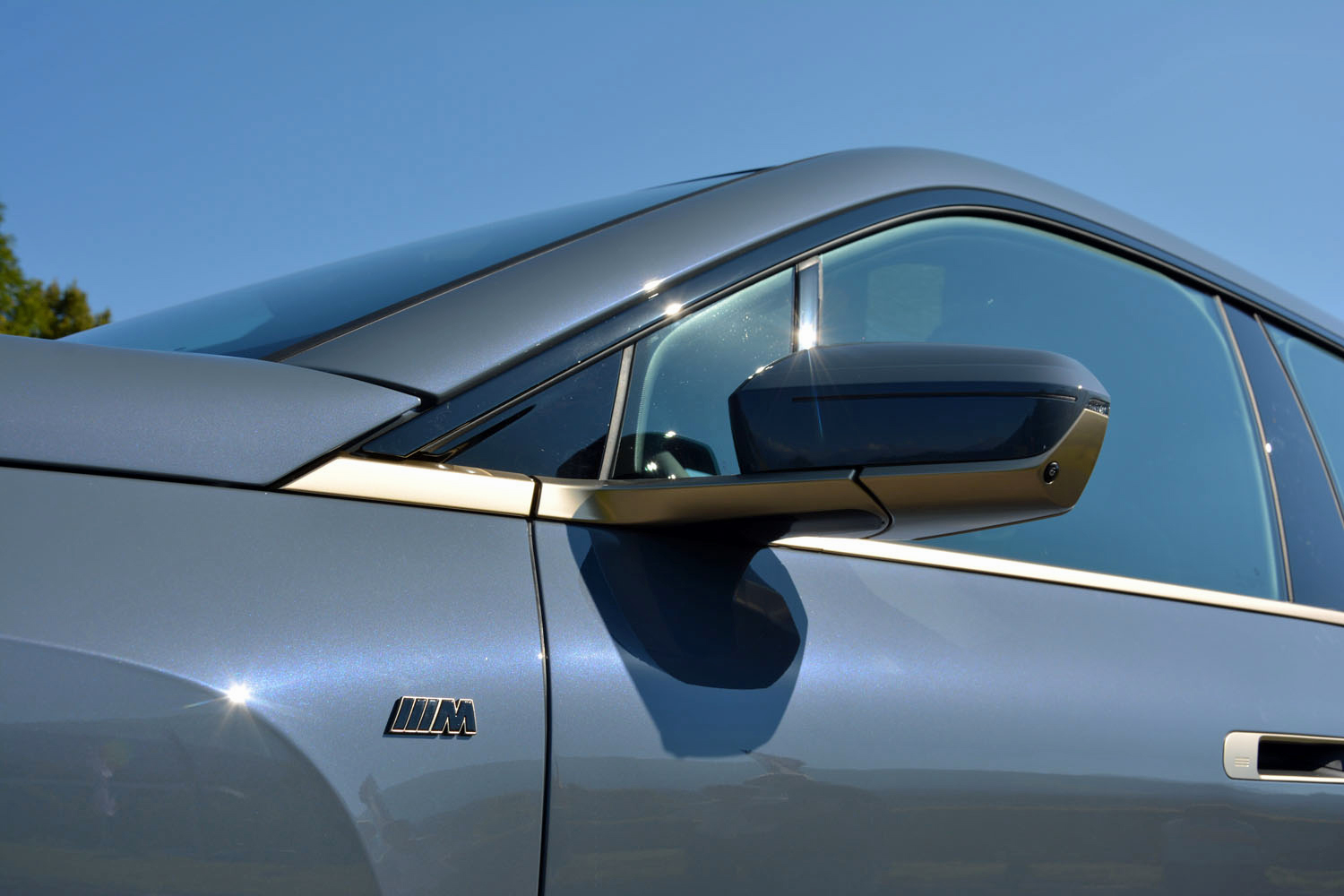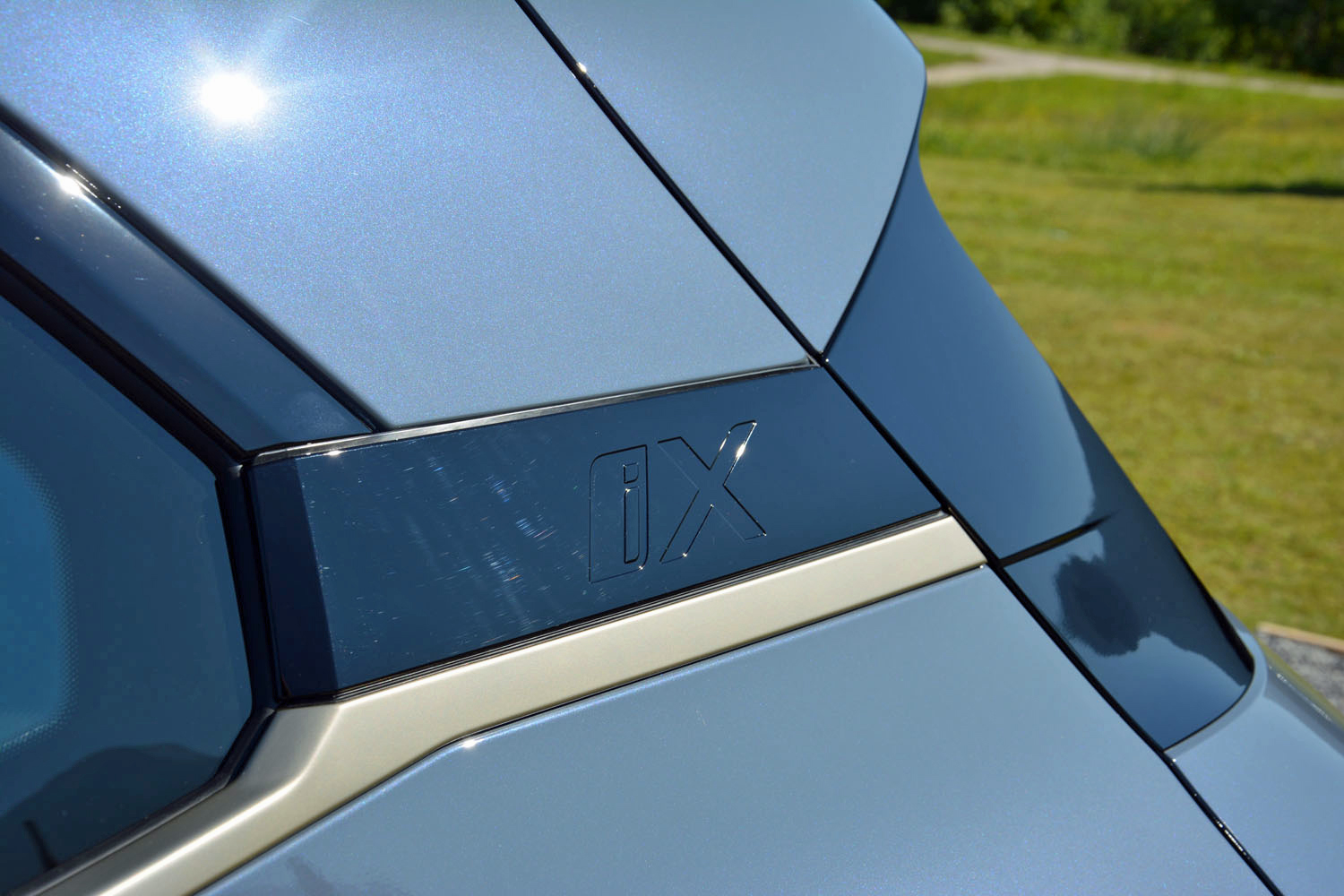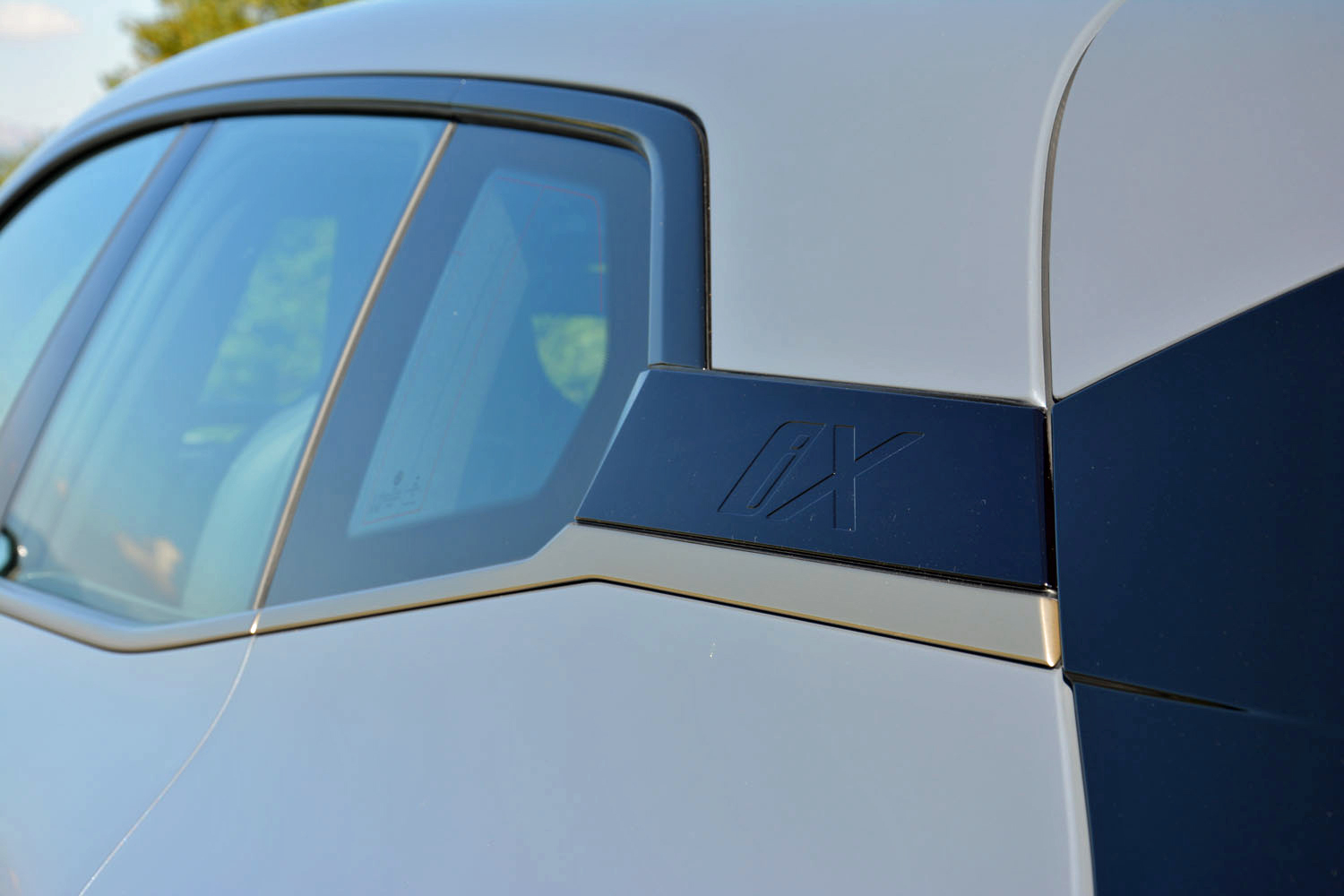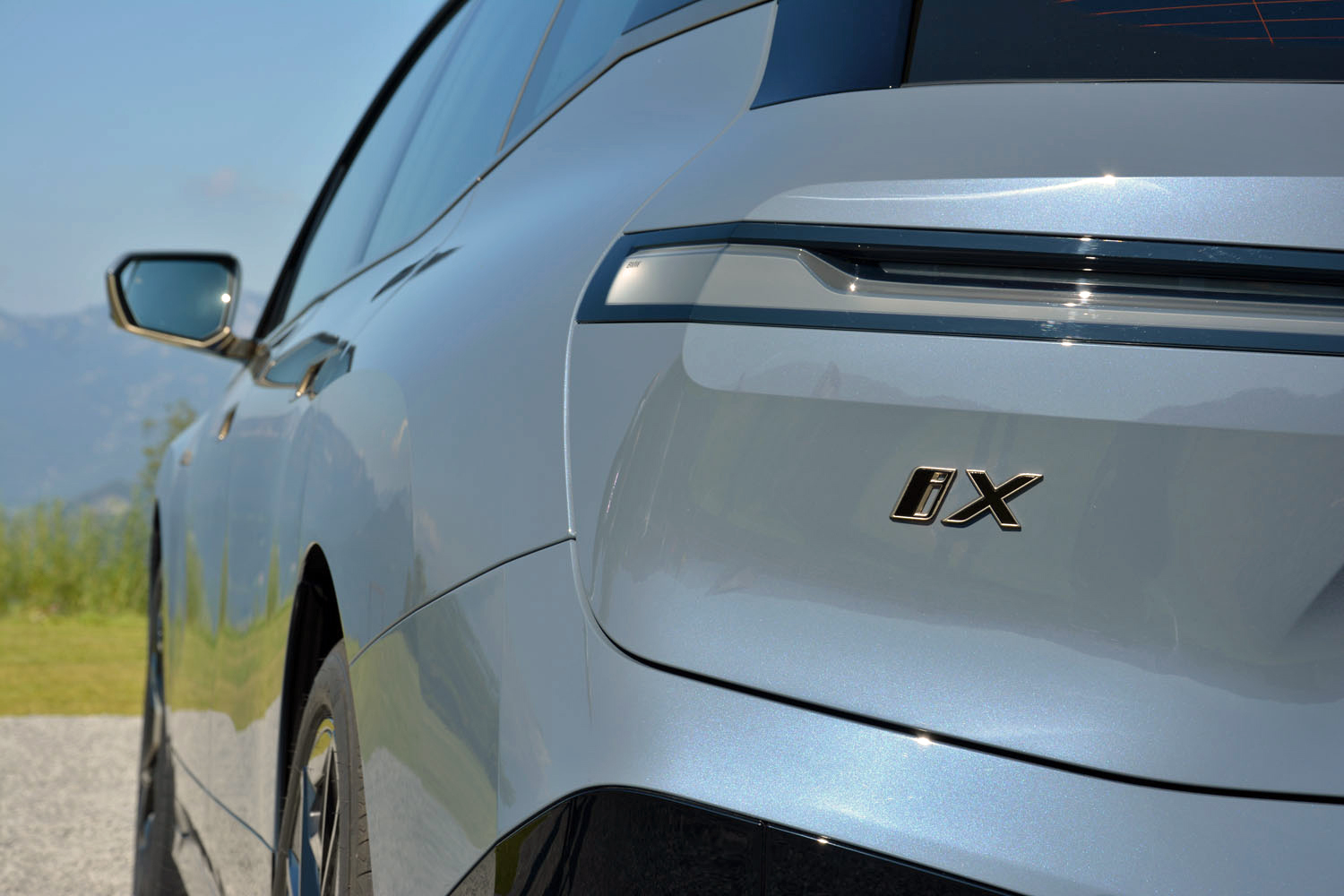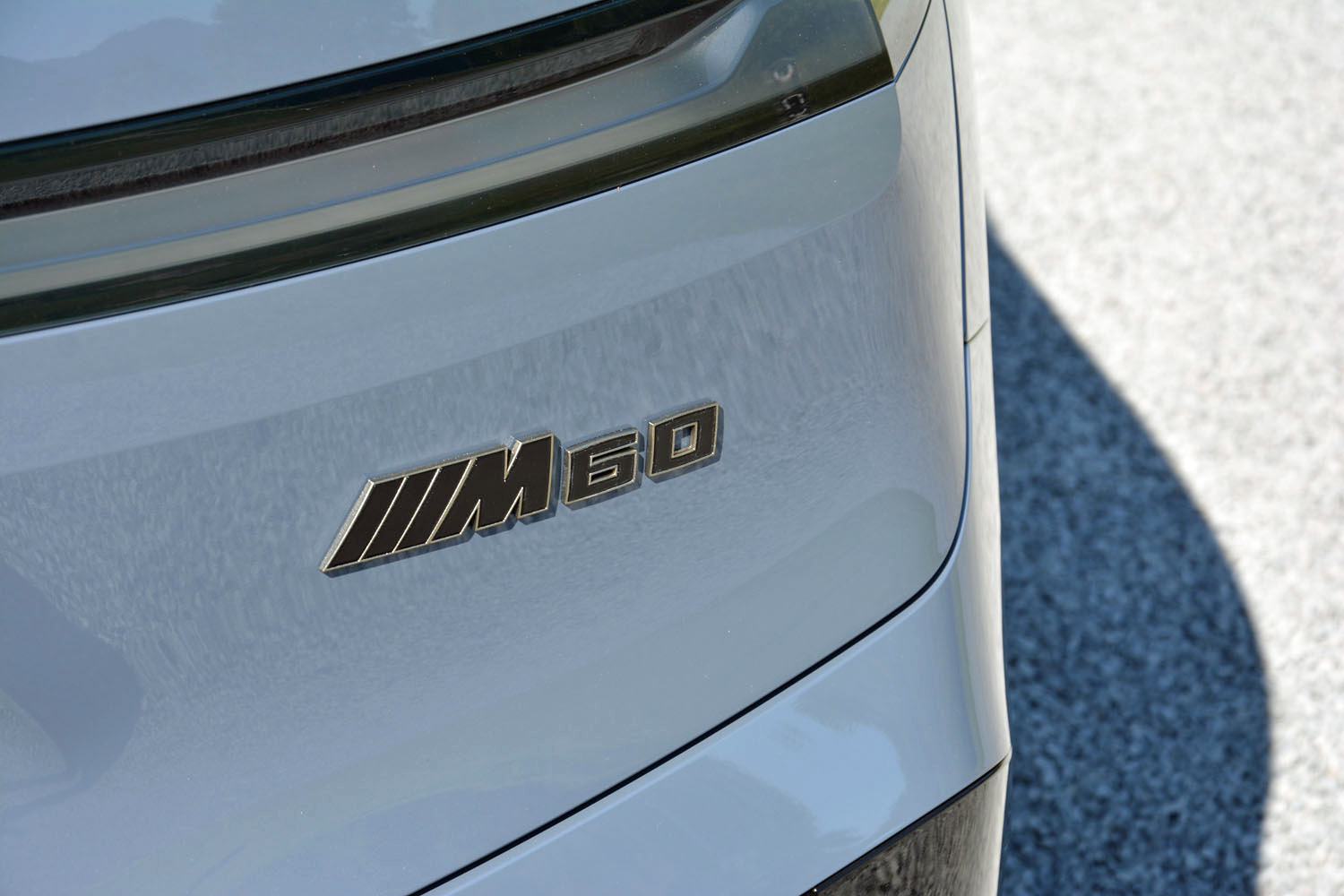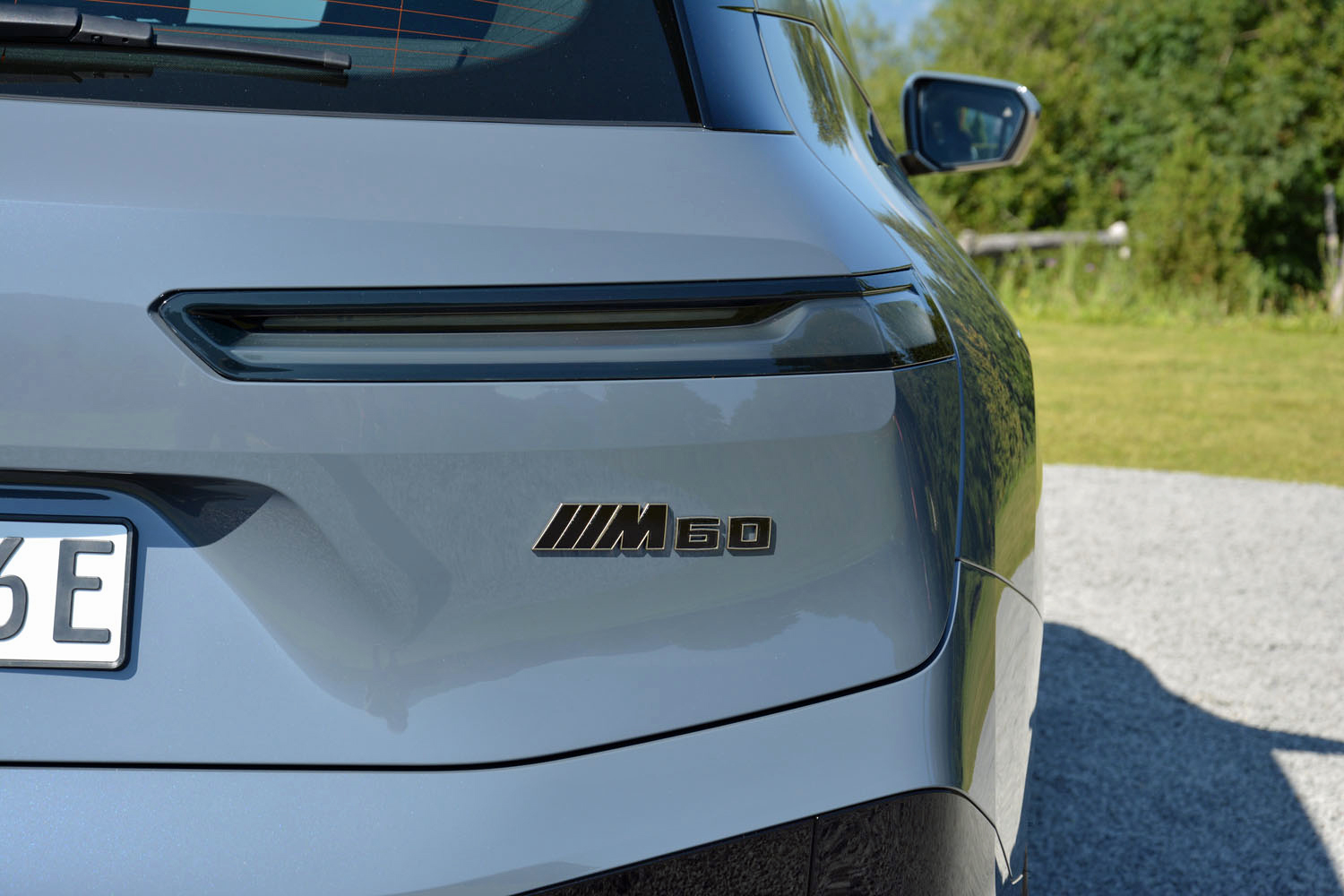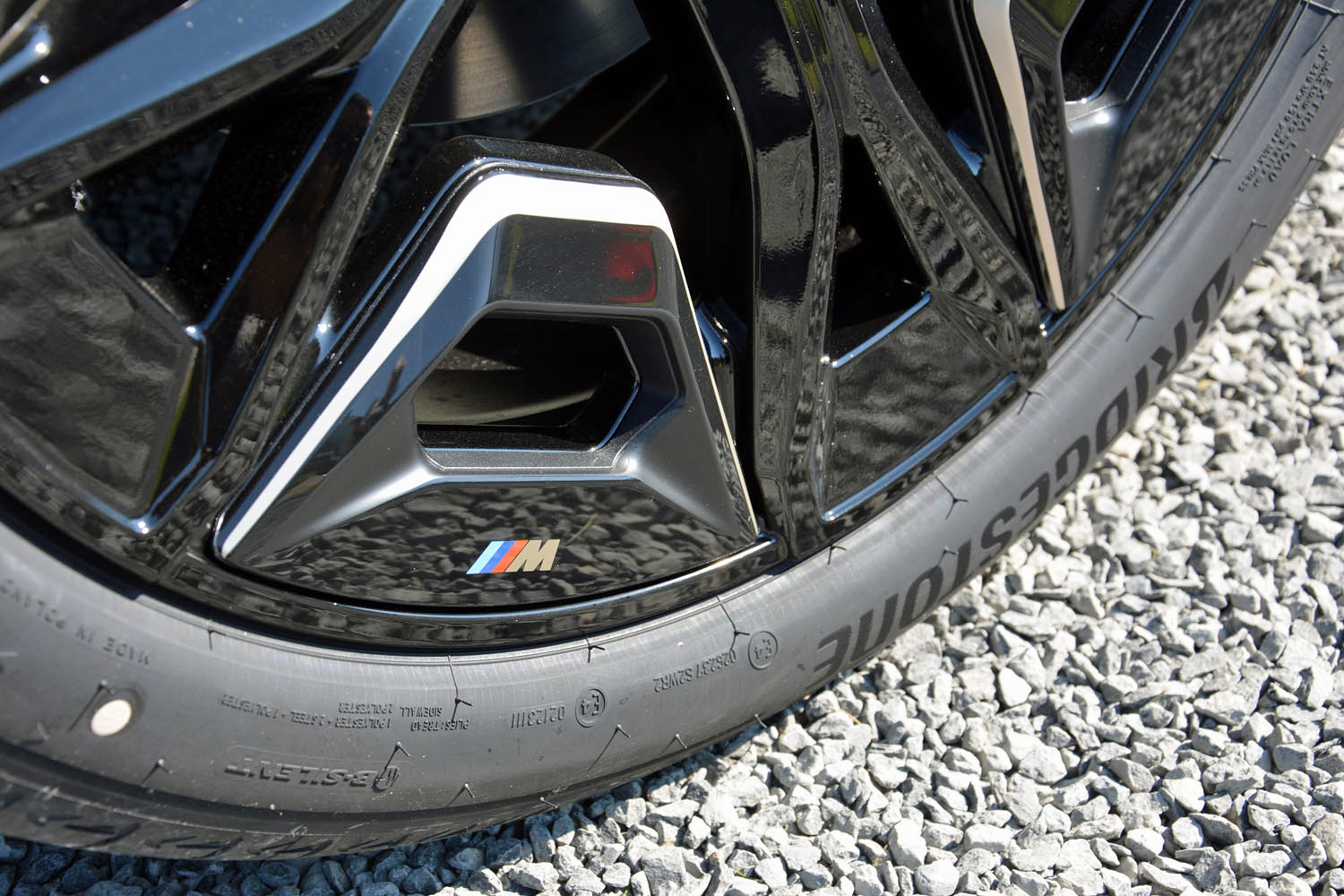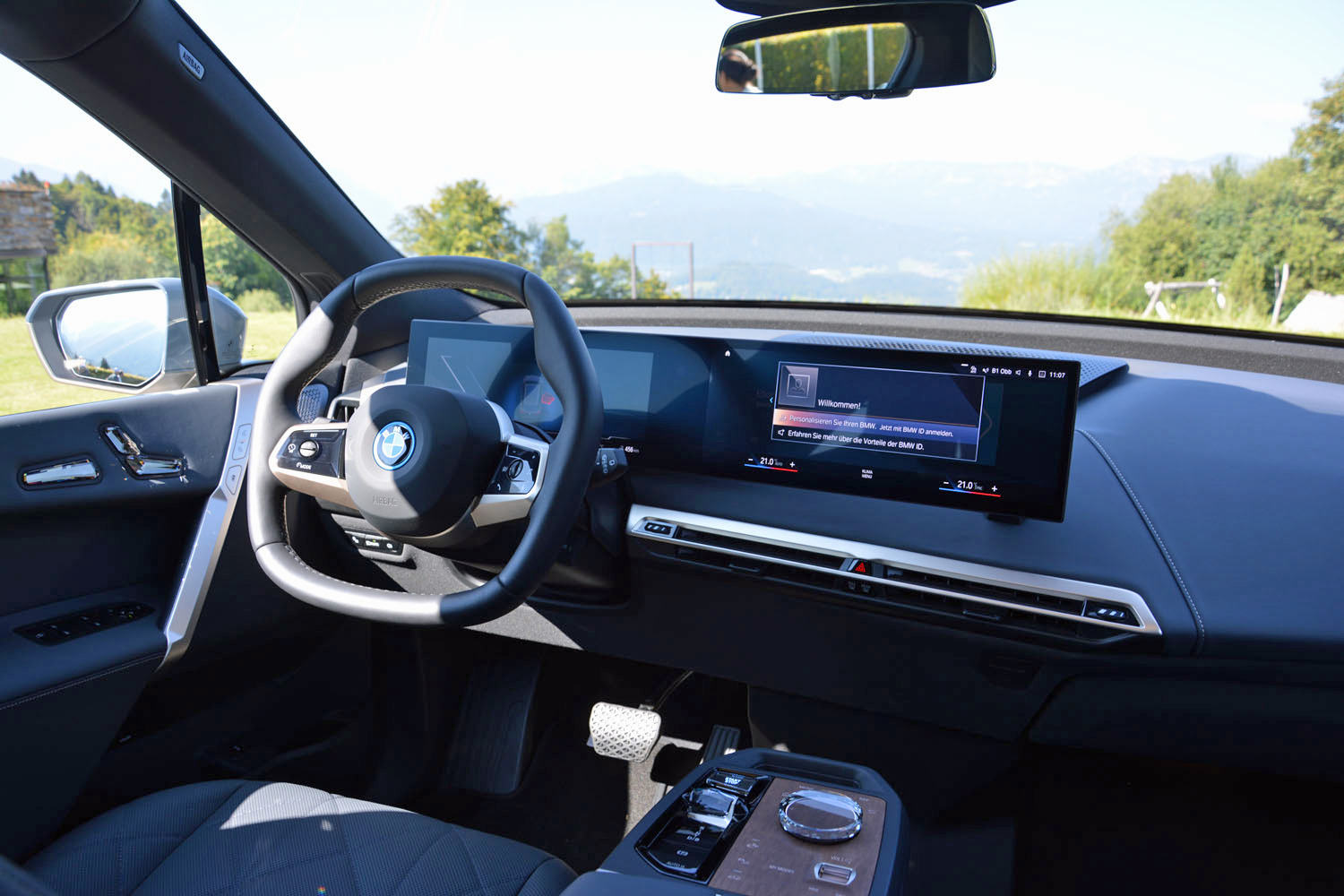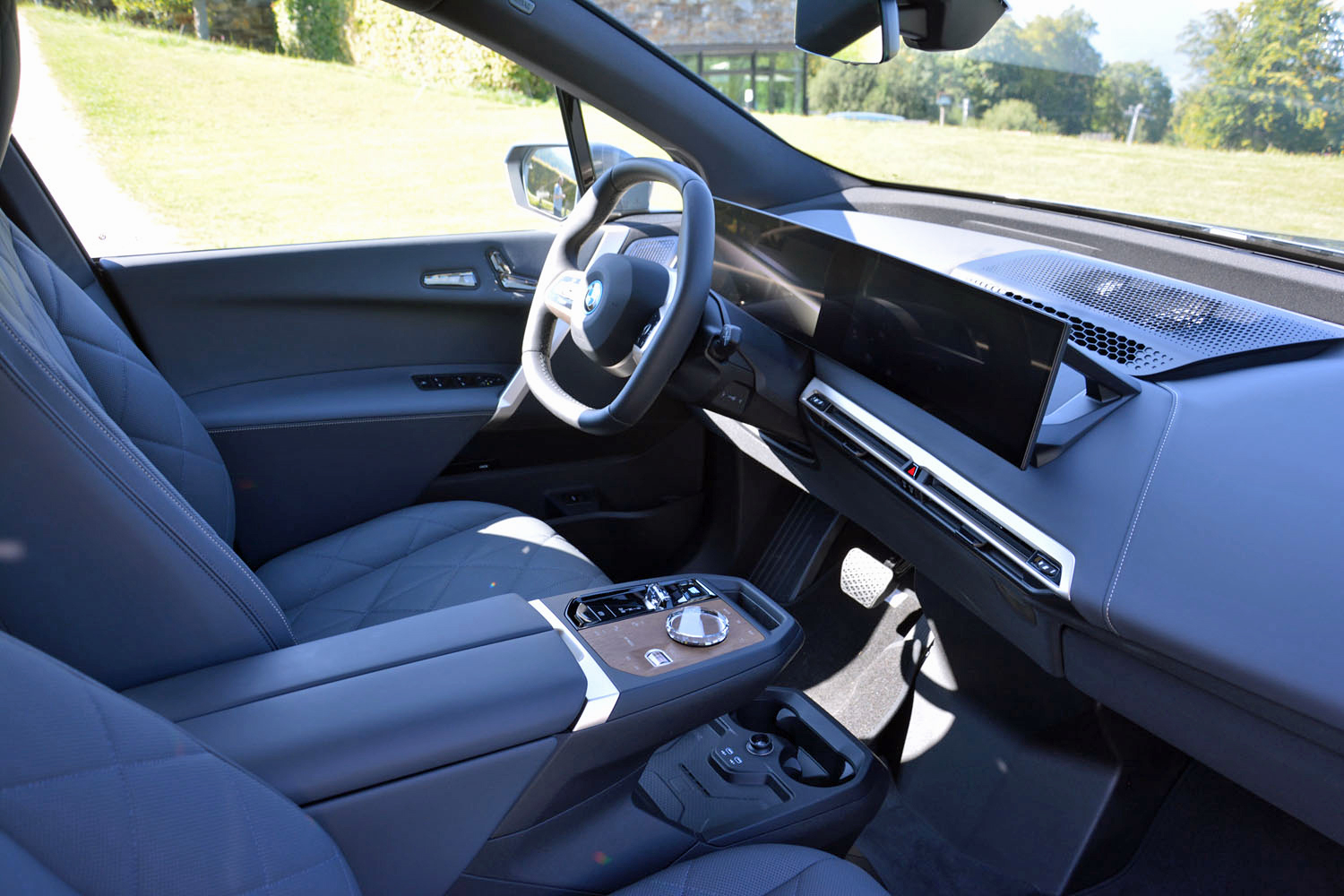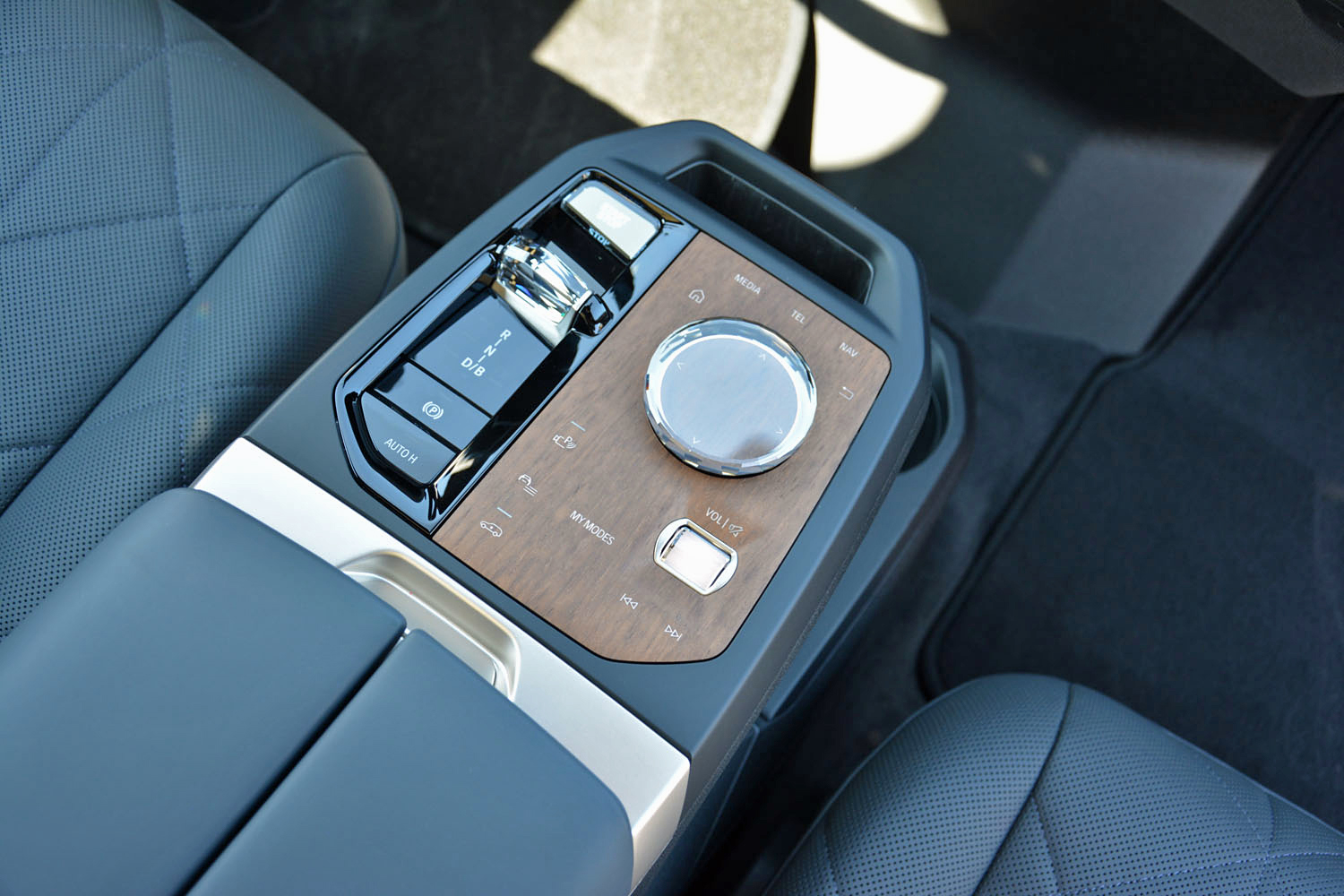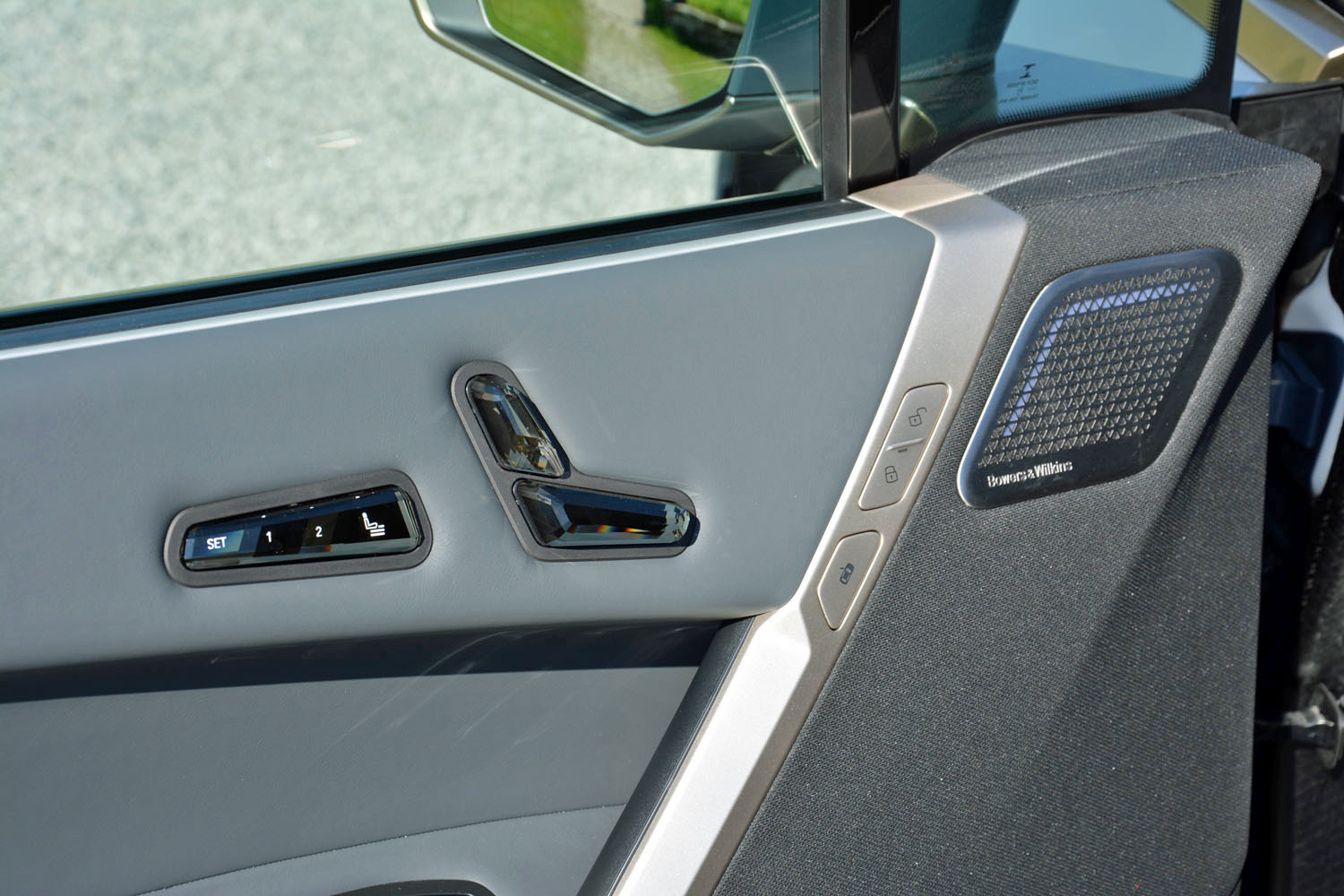BMW’s performance-obsessed M division is celebrating its 50th anniversary in 2022. It kicked off its birthday celebration by unveiling the 2023 iX M60, an evolution of the electric iX that stands out with stunningly quick acceleration, a usable driving range, and a subtle design.
It takes a well-trained eye to tell the M60 model apart from the standard iX, which was introduced in 2020. Look closely and you’ll notice blue brake calipers hidden behind version-specific aerodynamic wheels and a handful of M logos scattered across the exterior. The wings, vents, and generally muscular-looking design cues we’re used to seeing on BMW’s M models are nowhere to be found, and that’s intentional.
“The mix of M and i is very new, and we thought [making it too aggressive] would be too much for our target group. This car isn’t aimed at the typical M customer so it’s not what we normally do with an M car,” Carina Gartner, the iX’s product manager, told Digital Trends.
Besides, it’s what’s under the body that counts. Power comes from two electric motors (one per axle) that draw electricity from a 106-kilowatt-hour lithium-ion battery to zap the four wheels with 532 horsepower and 749 pound-feet of torque. Engineers achieved these figures by fitting a rear motor that’s bigger than the iX’s. And, those numbers only tell part of the story: Horsepower increases to 610 when the Sport Boost mode is engaged, and torque swells to 811 when the driver turns on the launch control function. BMW pegs the M60’s zero-to-60-mph time at 3.6 seconds, which is quicker than the first-generation M2, and its top speed at 155 mph when it’s fitted with summer tires.
We don’t know how the air-suspended, 5,769-pound M60 handles, which is arguably more important than flat-out acceleration to buyers in the market for a BMW with an M badge, but we’re told that 47.5% of that mass is on the front axle and 52.5% of it is on the rear axle. Another significant statistic is range: BMW estimates that the M60 will be able to drive for about 280 miles on a charge, though the EPA hasn’t tested the model yet. And, users can charge the battery pack from 10% to 80% in 49 minutes when they plug the SUV into a 100-kilowatt charger.
BMW dealers across the United States will begin receiving the 2023 iX M60 in June 2022. While pricing information hasn’t been announced yet, M60 will offer buyers a generous list of standard features that includes 21-inch wheels (22s are optional), heated and ventilated front seats, a panoramic roof panel with LED lighting, a huge touchscreen, a Bowers & Wilkins surround-sound system, and 5G compatibility.

